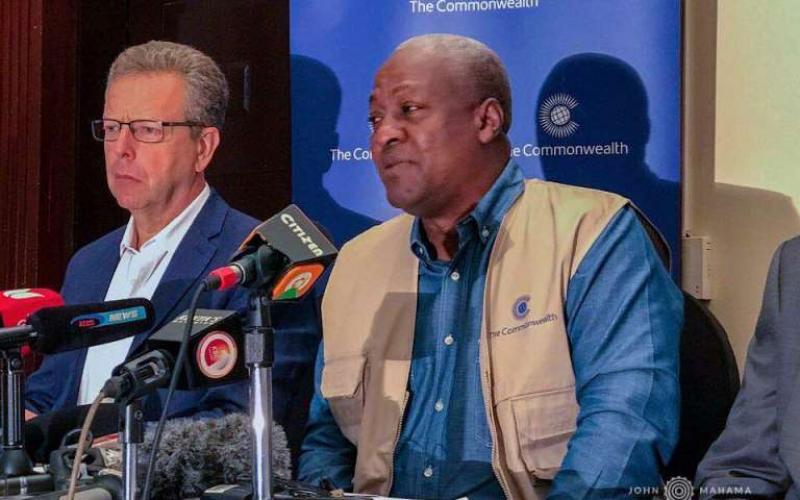Following the historic, unprecedented decision by the Supreme Court to nullify Kenya’s presidential election, which international election observers had largely commended, the credibility of observers, and the practice of observation, was seriously damaged. In this article, RVI Fellow Aly Verjee identifies six lessons for international election observers ahead of the re-run of polls planned for 26 October.
The critics
It might be shorter to list those who were not critical of international election observers in Kenya. Following the historic decision of Kenya’s Supreme Court to nullify the August 8 presidential elections, international election observation missions (EOMs) have been pummelled.
Leading human rights activist Maina Kiai said: ‘There is something incredibly wrong with the way international election observation is happening…the international observers came in for a short time, saw something glossy, something shiny on the day of election and then they make a decision. That is patently shallow.’
 Muthoni Wanyeki, formerly of Amnesty International’s Nairobi office, opined: ‘there’s a problem with the election observer industry. They focus too much on the pre-electoral process and the process of voting.’
Muthoni Wanyeki, formerly of Amnesty International’s Nairobi office, opined: ‘there’s a problem with the election observer industry. They focus too much on the pre-electoral process and the process of voting.’
John Kerry, who co-led the Carter Center’s EOM, came in for particular opprobrium. One opposition official snorted moments after the Supreme Court ruling that Kerry had come to Kenya to see baby elephants at Sheldrick’s. (This is false: Kerry did not visit the elephant sanctuary.) But the image is beguiling: privileged foreigners using the pretext of an election to be tourists in a country with no shortage of attractions. (The same sentiment was offered by pundits in Uganda last year.)
Criticism of observation is not new, nor limited to Kenya. Earlier this year, Stephen Chan argued ‘electoral observation, while not worthless, has limited worth…the observers are not so much the intrepid pioneers in the dark as well-accustomed members of a bus tour party.’
Writing about Uganda’s 2016 elections, Nic Cheeseman, Gabrielle Lynch and Justin Willis argued observers had pulled their punches, and went on to conclude: ‘international observers have frequently refused to give elections the evaluations they deserve for fear of offending incumbent governments and triggering political instability — and, also, it would seem, because they apply lower standards on the continent.’
Shortly after the ruling of the Supreme Court in Kenya, Cheeseman said: ‘we need to rethink the way we are doing election monitoring…whether we can make the international monitoring system more dynamic, more responsive, more cutting-edge and more digital.’
This article is not an unconditional, uncritical defence of international EOMs in Kenya in 2017. Instead, I want to reflect on what can be learned from Kenya. Can any hard truths emerge for international observers as they prepare to observe again in Kenya, and indeed elsewhere? By dismissing the value of observation, are critics missing something essential? I would argue yes to both questions.
…


